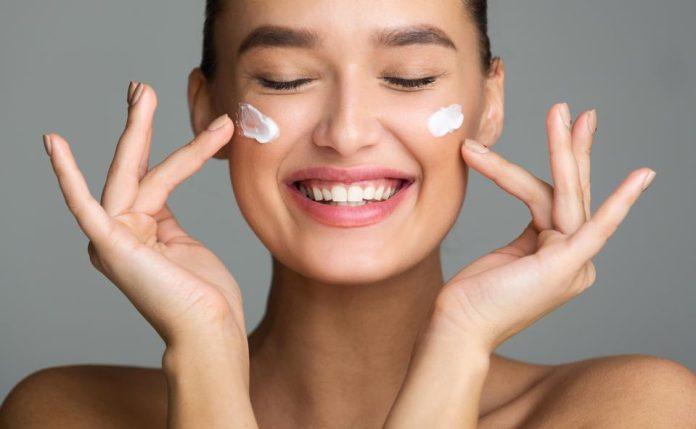Hormone-sensitive skin is a topic that deserves attention when it comes to skincare. Our skin health can be drastically affected by hormonal changes, leading to various skin conditions. In this blog post, we will explore the importance and impact of hormonal skincare, shedding light on key ingredients that can help maintain healthy skin. Understanding the unique properties and benefits of these ingredients will empower you to make informed choices and select safe skincare products for hormone-sensitive and sensitive skin.
Table of Contents
Hormonal Skin Conditions and their Influences
Hormonal changes can have a significant influence on our skin, giving rise to various skin conditions. Let’s delve into three common hormone-related skin concerns:
Acne
Battling Breakouts Hormonal fluctuations, especially during puberty, menstrual cycles, or hormonal imbalances, can trigger acne breakouts. Increased oil production, clogged pores, and inflammation are common culprits. Hormone-sensitive skincare products that address acne often contain key ingredients like retinoids.
Rosacea
Taming Flare-Ups Rosacea, a chronic skin condition, is often characterized by redness, flushing, and small bumps. Hormonal factors can trigger or worsen rosacea flare-ups. It’s essential to choose skincare products that are gentle, non-irritating, and formulated to soothe inflammation.
Hyperpigmentation
Managing Dark Spots Hormonal fluctuations, such as those experienced during pregnancy or due to hormonal disorders, can contribute to hyperpigmentation. Dark spots, melasma, or post-inflammatory hyperpigmentation may appear. Targeted skincare ingredients like niacinamide can help reduce the appearance of hyperpigmentation.
Key Skincare Ingredients for Hormone-Sensitive Skin
To effectively address hormone-related skin concerns, certain ingredients have shown remarkable benefits. Let’s explore these key ingredients and understand their unique properties:
- Retinoids – Promoting Skin Renewal Retinoids, derivatives of vitamin A, are known for their ability to promote cell turnover, reduce acne, and improve fine lines and wrinkles. They work by unclogging pores, reducing inflammation, and promoting the growth of healthy skin cells. Look for safe skincare products containing retinoids like retinol or adapalene.
- Hyaluronic Acid – Hydration and Barrier Support Hyaluronic acid is a humectant that attracts and retains moisture in the skin, providing essential hydration. It also supports the skin’s barrier function, protecting it from external irritants. Opt for skincare products with hyaluronic acid to replenish moisture and maintain a healthy skin barrier.
- Niacinamide – Oil Balancing and Redness Reduction Niacinamide, also known as vitamin B3, has been found effective in controlling sebum production, reducing oiliness, and managing acne breakouts. Additionally, it helps minimize redness and soothe irritated skin. Incorporate skincare products containing niacinamide into your routine for their oil-balancing and anti-inflammatory properties.
- Antioxidants – Protection Against Oxidative Stress Antioxidants play a vital role in combating free radicals and protecting the skin from oxidative stress. They help neutralize damaging molecules and prevent premature aging. Look for skincare products enriched with antioxidants like vitamin C, green tea extract, or resveratrol for added protection and skin health benefits.
Understanding Skincare Labels for Hormone-Sensitive Skin
When choosing skincare products for hormone-sensitive skin, it’s crucial to understand ingredient labels. Avoid ingredients like fragrances, parabens, sulfates, and phthalates, as they can potentially irritate hormone-sensitive skin and disrupt hormonal balance. Look for products labeled as fragrance-free, paraben-free, sulfate-free, and phthalate-free to ensure a safer option for your skin.
Scan the ingredient list for the key ingredients we discussed earlier, such as retinoids, hyaluronic acid, niacinamide, and antioxidants. These ingredients can provide targeted benefits for hormone-related skin concerns. Remember to prioritize products with these ingredients higher on the ingredient list for better efficacy.
Incorporating Hormone-Sensitive Skincare Ingredients
Now that you are familiar with the key ingredients, let’s talk about how to incorporate them into your skincare routine effectively:
- Building a Skincare Routine with Hormone-Sensitive Skin in Mind – Start with a gentle cleanser to remove impurities without stripping the skin. Follow it up with a hydrating toner and then introduce your targeted treatments containing retinoids, hyaluronic acid, niacinamide, or antioxidants. Finish with a moisturizer and sunscreen during the day.
- Considering Compatibility and Layering of Products – When using multiple hormone-sensitive skincare products, it’s crucial to consider their compatibility and layering order. As a general rule, apply products with thinner consistencies first, allowing each layer to absorb before moving on to the next. This ensures optimal penetration and efficacy.
- Gradually Introducing New Ingredients and Monitoring Skin’s Response – Introduce new ingredients slowly and one at a time to your skincare routine. This allows your skin to adjust and minimizes the risk of irritation. Monitor your skin’s response and if any adverse reactions occur, discontinue the product and consult a dermatologist.
Recognizing Hormonal Skin Issues and Seeking Professional Advice
While incorporating the best hormone-sensitive skincare products can be beneficial, it’s essential to recognize when professional advice is needed. If you experience persistent or severe acne, rosacea flare-ups, or stubborn hyperpigmentation, it’s advisable to consult a dermatologist. They can assess your skin condition, identify any underlying hormonal factors, and recommend personalized skincare treatments.
If your skin concerns persist despite using appropriate hormone-sensitive skincare products, or if you suspect an underlying hormonal imbalance, it’s best to seek professional guidance. A dermatologist can provide a comprehensive evaluation, diagnose any hormonal skin issues, and recommend suitable treatments.
Balancing Diet and Lifestyle for Hormone-Sensitive Skin
Skincare is not solely reliant on products; a balanced diet and lifestyle also play a crucial role in supporting hormonal balance and overall skin health. Maintaining a well-balanced diet, regular exercise, managing stress levels, and getting enough sleep are essential for hormonal balance. These factors contribute to healthy skin by reducing inflammation and supporting optimal skin function.
Incorporate nutrient-dense foods such as fruits, vegetables, whole grains, and lean proteins into your diet. Foods rich in omega-3 fatty acids, vitamins A, C, and E, and antioxidants can promote healthy skin and hormonal balance. Stress can disrupt hormonal balance, leading to skin issues. Practice stress-management techniques like meditation, yoga, or engaging in hobbies you enjoy. Additionally, prioritize quality sleep as it allows your body to repair and regenerate, supporting overall skin health.
Adopting an informed and mindful approach to hormone-sensitive skincare is key to maintaining healthy skin. By understanding the impact of hormonal changes, identifying suitable ingredients, and seeking professional advice when needed, you can nurture your skin and achieve a radiant complexion. Remember, skincare is not just about products; it’s a holistic journey that encompasses lifestyle choices and self-care practices. Embrace this approach and enjoy the benefits of healthy, glowing skin.








